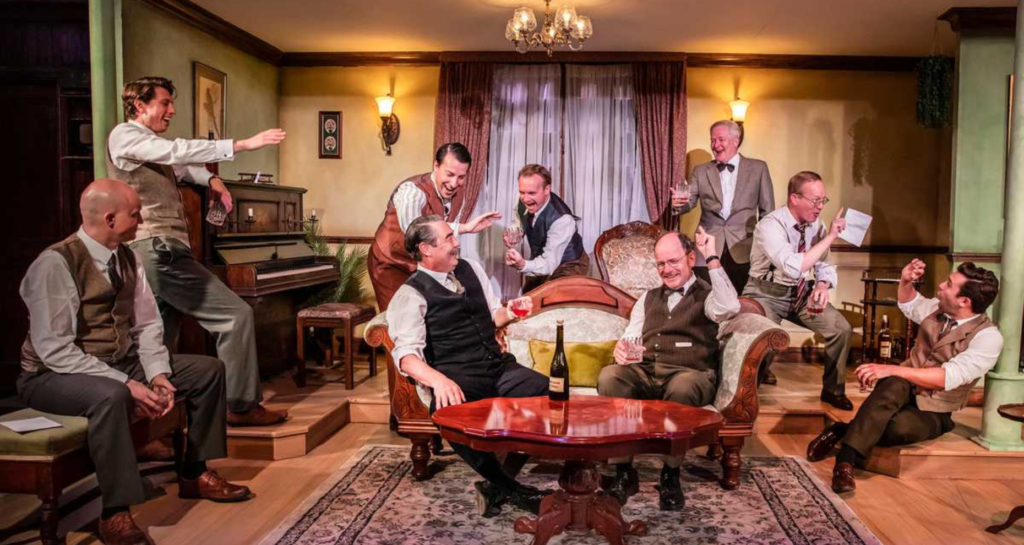
This play is set in Farm Hall and the events take place from July 1945 to January 1946. As a reminder, Nazi Germany capitulated in May 1945; Japan in September. The play tells the story of ten German physicists sequestered by the British, who monitored their conversations with the aim of figuring out how close Hitler had got to creating an atomic bomb.
The story is a fascinating one – and let me own up – I have not seen Oppenheimer – over three hours in a cinema was just not appealing. There is also something refreshing about a cast of eleven – eleven white men – on the small stage. A beautiful set at that, split level, with the dialogue happening on the ground and first floor of the place of incarceration. Each man is his own character, some more developed, others more of a semi colon in the conversation. But all this not in the West End, but in the new venue of the Southwark Playhouse.
For me this play raises the timeless question – whether the pursuit of knowledge or art can happen irrespective of the surrounding context? Can we justify things by saying – well if it was not me, it would have been somebody else? There is one moment in the play when I could not help but gasp – when one of the scientists compares his incarceration to a concentration camp. My grandfather having been to one, that comment cuts so deep – a lovely British countryside resort after all was anything but a Nazi work/death camp
There is also one aspect that is difficult not to transpose onto today’s reality – the play clearly shows how politics, including Hitler’s antisemitism, stifled German scientific research. Thinking of Brexit, and its impact on British collaboration with EU counterparts, one can only wonder how Britain’s own scientific progress is being impacted.